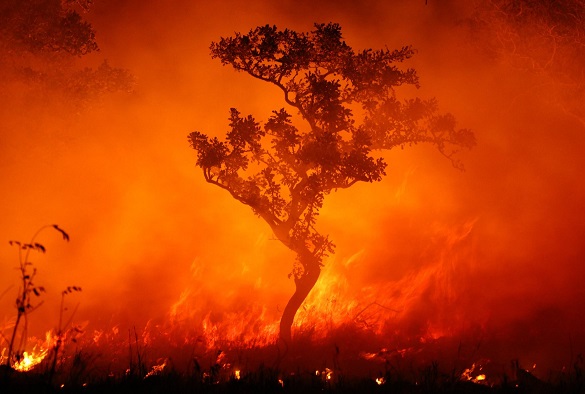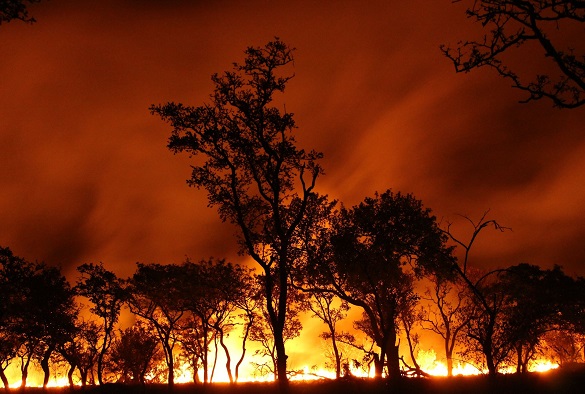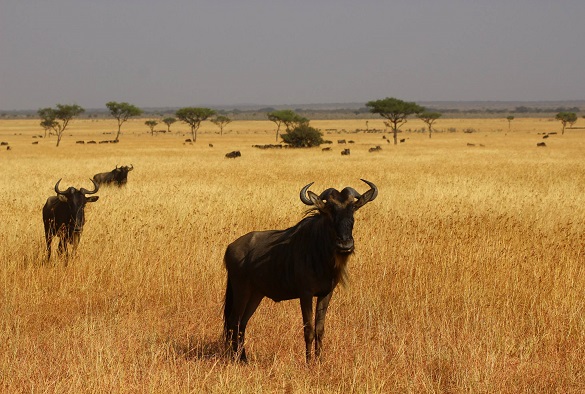
A study of the Serengeti-Mara ecosystem led by University of Liverpool researchers has found that an increase in livestock numbers is threatening the ecology of the region due to a decline in both the number and area of land burnt by fires.
In a paper published in the journal Global Change Biology, researchers found that satellite data between 2001 and 2014 revealed a dramatic decline in the number of fires and the area of land burnt (both around 40% in 14 years) in and around the protected areas of the Serengeti-Mara ecosystem, and linked these declines to increasing livestock populations.
In the first study of its kind, researchers used satellite data to map the number of fires, the area of land burnt, fire size, date, frequency and intensity, producing a comprehensive pattern of fire activity across the region for this period. They also used satellite imagery to count 56,000 livestock enclosures and generate a map of livestock density across the Serengeti-Mara.
This fire data was then mapped against factors such as rainfall, soil type, and livestock density to better understand the cause of patterns in fire across space and through time. One of the most iconic areas in Africa, the Serengeti-Mara ecosystem in Southern Kenya and Northern Tanzania is one of Africa’s largest trans-boundary protected area complexes and the site of the iconic wildebeest migration.

Fire is a frequent and natural disturbance in African savannahs and plays an important role in the ecology of the Serengeti-Mara ecosystem.
Dr James Probert, lead author of the study and a former PhD candidate at the University of Liverpool’s School of Environmental Sciences, said: “Intensifying human land uses are leading to rapid changes in the ecology of the Serengeti-Mara, with the potential for negative consequences for both local communities and wildlife.
“Fire is an important feature of the region and without it the open grasslands which the Serengeti-Mara is famous for would likely disappear and be replaced by thorny scrub and trees.
“Our research found that heavy livestock grazing in this area is reducing the number of fires, the area burning and their intensity. This will have severe consequences for the way the ecosystem functions.
“This research contributes to our understanding of fire across African savannahs and therefore our ability to manage those ecosystems.”
Liverpool Professor Kate Parr of Tropical Ecology and co-author, added: “The complete lack of fire now in some parts of the Serengeti is very concerning and suggests these savannas are no longer functioning as they should.”
The paper `Anthropogenic modifications to fire regimes in the wider Serengeti-Mara ecosystem’ is published in Global Change Biology (doi: 10.1111/gcb.14711).
The research was part of the Serengeti Fire Project, a Leverhulme Trust funded initiative. James Probert’s PhD was funded by a NERC studentship and co-supervised by the University of York.
